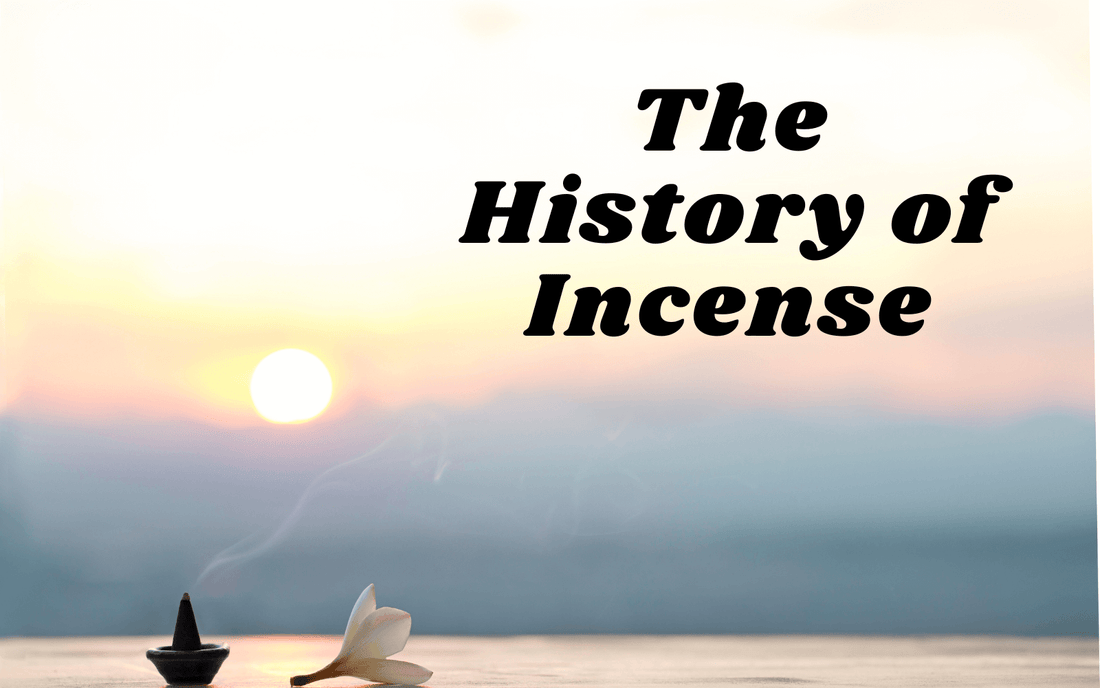
A FRAGRANT JOURNEY THROUGH TIME
Share
Vancouver, B.C., July 2023
UNVEILING THE HISTORY OF INCENSE
Throughout history, the captivating aroma of incense has filled the air, enchanting our senses and transporting us to ancient rituals, sacred ceremonies, and spiritual realms.
The history of incense is intertwined with human civilization, spanning across cultures, religions, and continents. In this blog post, we embark on a fragrant journey through time, unraveling the captivating history of incense and its profound impact on human traditions and spirituality.
Ancient Origins:
The origins of incense can be traced back thousands of years to ancient civilizations. The earliest recorded use of incense can be found in ancient Egypt, where it was employed in religious ceremonies, offerings to the gods, and mummification rituals. The Egyptians believed that the rising smoke carried prayers and offerings to the divine realms.

Eastern Incense Traditions:
In the East, incense has a rich and diverse history. In ancient China, aromatic substances such as sandalwood, cinnamon, and cloves were used as offerings to ancestors and deities. The practice of burning incense was also embraced by Taoist and Buddhist traditions, where it played a vital role in meditation, creating a serene atmosphere, and enhancing spiritual focus.
India, too, has a long-standing tradition of incense. Known as agarbatti, Indian incense is made from a blend of aromatic herbs, spices, and natural resins. Incense holds immense significance in Hindu rituals, symbolizing the presence of deities and purifying the surroundings. It also became an integral part of Ayurvedic healing practices, believed to promote well-being and balance.
The Influence of Ancient Greece and Rome:
The use of incense was prevalent in ancient Greece and Rome, where it was associated with both religious and secular activities. Temples and homes were often perfumed with the fragrance of burning incense, believed to please the gods and purify the surroundings. The Romans also incorporated incense into social gatherings, banquets, and public events, creating an atmosphere of luxury and opulence.

Influence on Abrahamic Religions:
Incense holds a significant place in the Abrahamic religions of Judaism, Christianity, and Islam. In the Hebrew Bible, incense was used in the Tabernacle and later in the Temple of Jerusalem, symbolizing the prayers of the people ascending to heaven. In Christian worship, incense plays a similar role, creating an atmosphere of reverence and spirituality during Mass and other liturgical ceremonies. In Islam, incense is used in various religious and cultural contexts, with its fragrance believed to purify and elevate the spiritual experience.
Continued Significance:
The tradition of burning incense has persevered through the ages and continues to thrive in various cultures and religions worldwide. From temples and churches to meditation practices and personal rituals, incense remains a bridge between the material and spiritual realms. Its evocative scents offer a sense of peace, tranquility, and connection to the divine.
The history of incense is an aromatic tapestry woven into the fabric of human existence. From ancient Egypt to the far corners of the world, the burning of incense has been a source of spiritual solace, cultural expression, and sensory delight. As we inhale the intoxicating fragrances, let us appreciate the ancient wisdom and reverence for the divine that permeate this timeless tradition. Whether used for worship, meditation, or simply to create a sacred space, incense serves as a reminder of our shared humanity and our innate desire to seek harmony and transcendence.
Let the captivating history of incense transport you to ancient rituals and spiritual realms, as we embrace the timeless tradition that continues to enrich our lives today.
Your HUSS Incenses Team
www.hussincense.com
